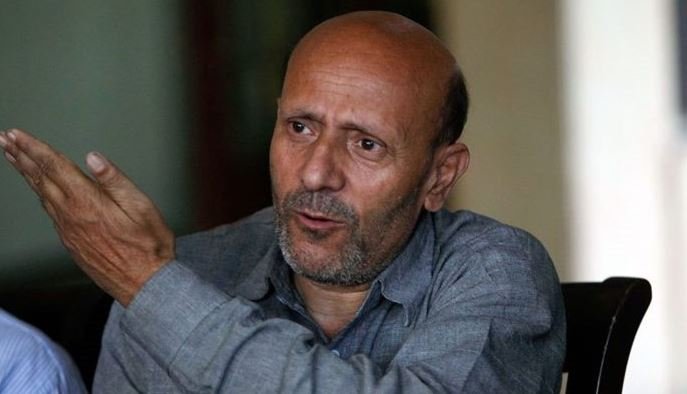SRINAGAR, SEPTEMBER 27: Sheikh Abdul Rashid, the jailed Lok Sabha MP from Jammu and Kashmir’s Baramulla constituency, has announced that he will undertake a two-day hunger strike inside New Delhi’s Tihar Jail from October 1 to October 3 to mark Gandhi Jayanti and highlight the enduring relevance of Mahatma Gandhi’s philosophy of non-violence. Rashid, popularly known as Engineer Rashid, made the announcement through a handwritten letter addressed to Mahatma Gandhi (“Bapu”) and forwarded to the Lok Sabha Speaker, calling for renewed commitment to peace and harmony in an increasingly divided world.
In the letter, Rashid, who is currently lodged in Tihar Jail in connection with a terror funding case, wrote that humanity today faces an urgent need for Gandhi’s message of non-violence. He lamented that while nations and leaders across the globe frequently invoke Gandhi’s ideals, their actions often contradict their words. “Those who speak most of your message, Bapu, hardly match their words with deeds,” he observed, adding that violence continues to be perpetuated directly or indirectly even in the name of peace.
Expressing deep anguish over the situation in Kashmir, Rashid recalled Gandhi’s historic role during the Partition, when he described Kashmir as a “beacon of hope and harmony” amid the communal violence sweeping the subcontinent. “But today,” Rashid wrote, “we Kashmiris are being branded with labels like anti-national, Pakistani proxies, communal, stone-pelters, militants, radicals, and Islamists.” He argued that being a devout Muslim is not synonymous with radicalism and said that Kashmiri voices demanding legitimate political and human rights are often silenced or ignored.
Rashid’s letter painted a grim picture of the human cost of decades-long conflict, referring to thousands who “lie in graves,” prisoners who have lost their lives in custody, and countless others detained under strict security laws. He also highlighted the ongoing plight of Kashmiri Pandits and border residents, noting that even decades after Partition, many continue to live as refugees despite the historical role Kashmiri Muslims played in protecting them during turbulent times.
The MP criticised what he described as “divisive politics” and “draconian policies” that, in his view, have replaced Gandhi’s inclusive vision. “Our commitment to non-violence is interpreted as weakness,” he wrote, alleging that Jammu and Kashmir has been turned into an “experimental lab” by the state. Rashid warned that divisive rhetoric, such as branding Muslims as outsiders or using terms like “Babar ki Aulad,” fuels hate and undermines the very idea of India. “The great Indian state does not need enemies from outside. The ultranationalists are doing all that enemies cannot do,” he stated.
Rashid also described Tihar Jail as a “second home” for those who believe in non-violent resistance and are striving for their rights. He argued that many remain silent on the misuse of laws like the Unlawful Activities (Prevention) Act (UAPA) out of fear, even as thousands remain incarcerated.
By observing a hunger strike coinciding with Gandhi Jayanti, Rashid said he aims to remind the country of the transformative power of Gandhi’s philosophy. “The world today is in desperate need of peace, and Gandhi’s teachings of non-violence are more relevant than ever,” he wrote. His planned fast, beginning at 10 am on October 1 and concluding at 10 am on October 3, is intended to serve as a peaceful reminder of the principles of justice, dignity, and non-violence that Mahatma Gandhi espoused.
Rashid concluded his letter by expressing hope that Gandhi’s ideals would inspire introspection among policymakers and citizens alike, urging them to work towards a society rooted in equality, compassion, and respect for all.




